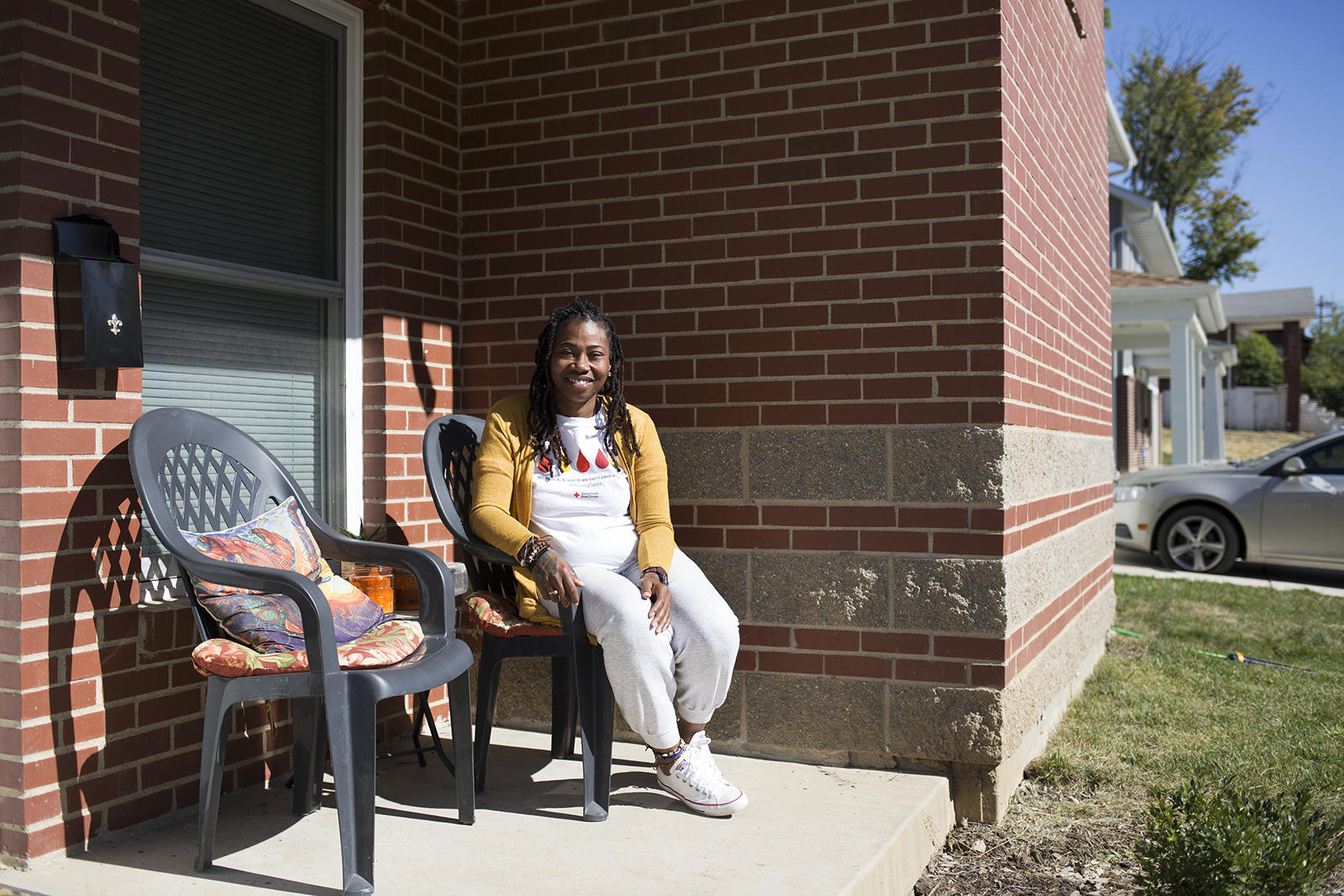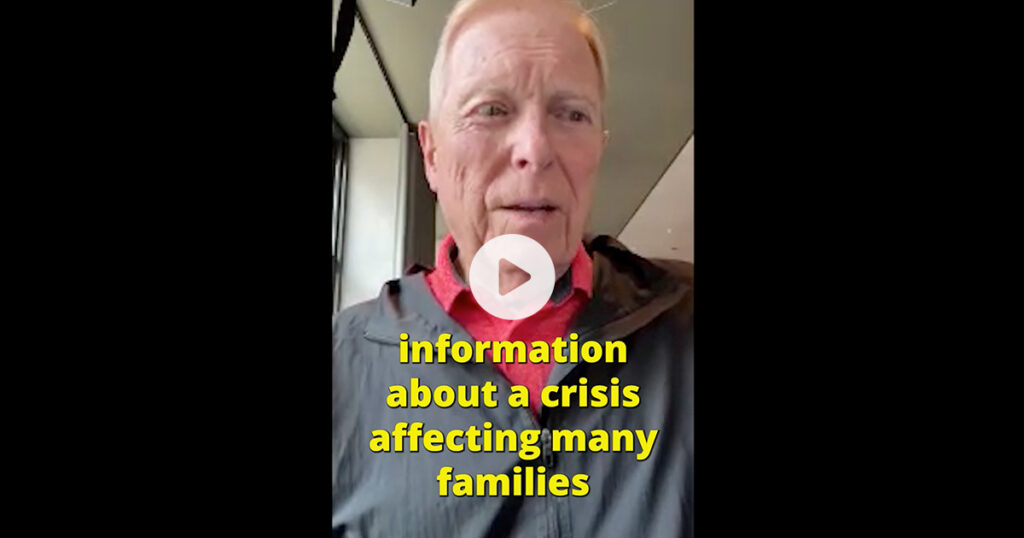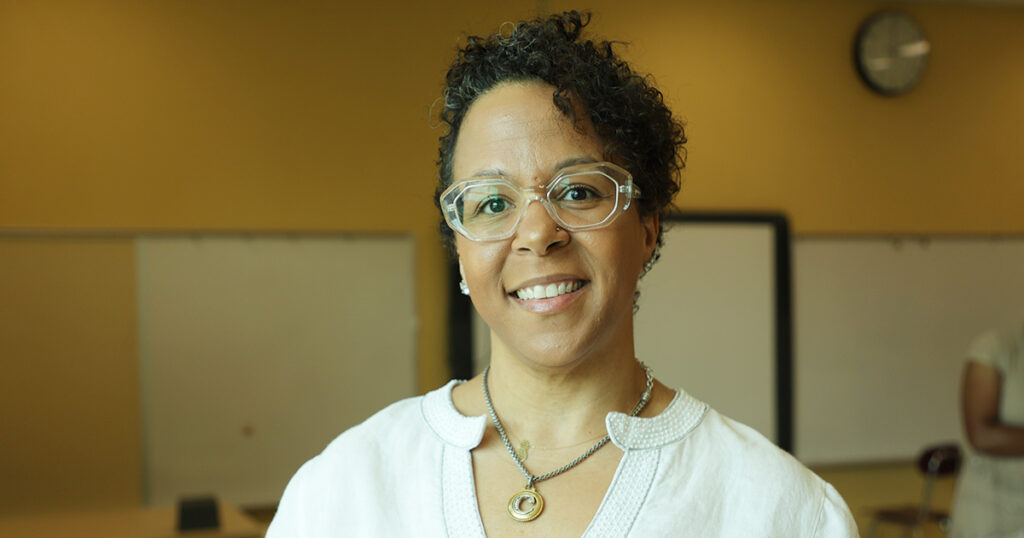Mary Harris poses outside her new townhouse in Pine Lawn. Nonprofit group Beyond Housing built dozens of affordable homes in the area using a low-income housing tax credit.
CAROLINA HIDALGO | ST. LOUIS PUBLIC RADIO
Jason Rosenbaum | St. Louis Public Radio
Missouri’s low-income housing tax credit is a complicated program that often gets debated in terms of dollars and cents, but for Mary Harris, the incentive that creates housing for the poor, elderly and disabled isn’t some philosophical concept.
Harris lives in a townhouse in Pine Lawn. Thanks to a tax credit to developers, she pays significantly less money in rent than for other places she’s lived throughout the St. Louis area. It’s an arrangement that’s had a profound impact on her life.
“It just sets the tone to be successful as far as if you have a mindset of opening your own business or saving up to buy your own home,” Harris said. “It opens a window for you to start saving for emergency funds.”
But efforts to create more housing using the state low-income housing tax credit have been stymied for roughly two years. Even though he’s been publicly supportive of the program that’s been a political flashpoint for a decade, Gov. Mike Parson pledged not to restart it without legislative changes. That didn’t happen, and now there are hints that the GOP chief executive may be ready to get the program moving again.
And the stakes are high: The state can issue more than $140 million a year in tax credits under the program.
While few doubt that the program has helped people, many critics of the tax credit have said it wastes the state’s money — and is a lucrative endeavor for well-connected developers. And while a board that Parson effectively controls can make major changes to how the incentive is doled out, some key legislators contend it wouldn’t have as much impact as legislative action.
“All I have to go on is what the governor has said in his own words, that he wants to see meaningful reform,” said state Rep. Derek Grier, R-Chesterfield, chairman of the House Economic Development Committee. “And a lot of conversation this year was around, ‘What does meaningful reform look like? And how do we accomplish meaningful reform?’ A lot of that conversation was very positive, and I think we did get very close to having a solution getting across the finish line.”
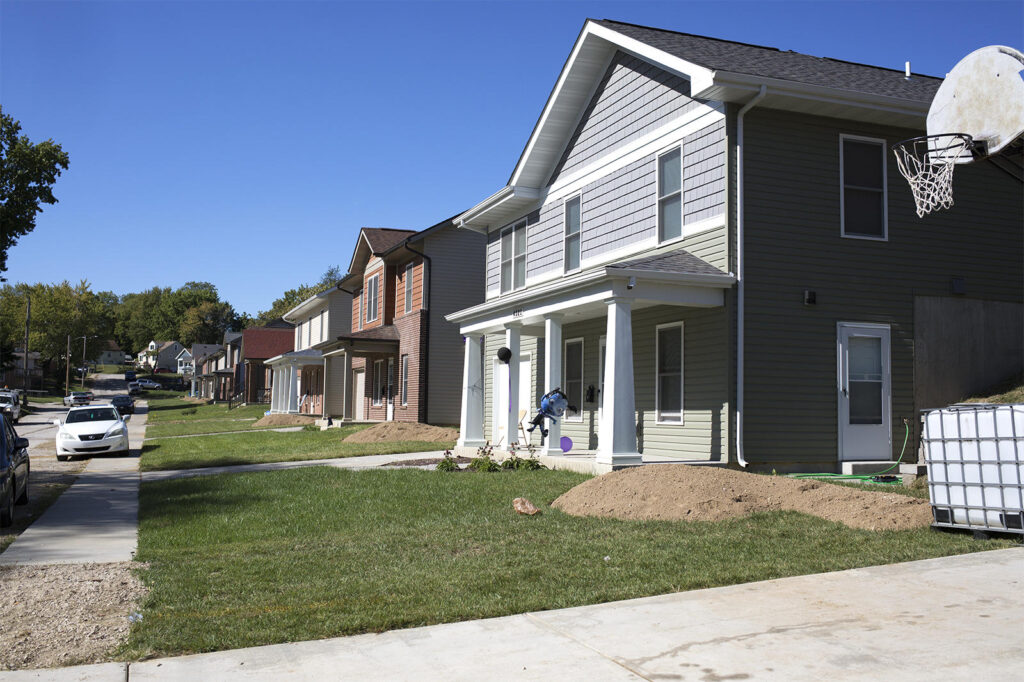
Frozen in Time
By his own admission, state Treasurer Scott Fitzpatrick has found the low-income housing tax credit to be the most complicated policy arena he’s entered since being elected to state government in 2012. It’s also the most politically perilous, as efforts to substantially overhaul the program have been unsuccessful for nearly a decade.
“Fun’s probably not the appropriate word for it,” Fitzpatrick said. “But it has been interesting.”
Here’s how the credit works: It starts with a for-profit or nonprofit company coming up with a housing proposal for the working poor, elderly or disabled. The project is presented to the Missouri Housing Development Commission, which has the final say over approving both state and federal low-income housing tax credits.
If the MHDC approves a project, the credits are eventually issued in 10 equal increments over a 10-year period. Typically, the tax credits are sold to banks or syndication firms, with the proceeds from that sale going toward bringing down development costs. That, in turn, allows a housing facility to charge lower rents.
Then-Gov. Eric Greitens engineered a freeze to the program in 2017, which Parson, who was lieutenant governor, strongly opposed. Parson’s campaign committee and a political action committee aimed at promoting his political prospects have taken thousands of dollars over the years from developers that benefit from the program.
Yet even when he became governor after Greitens’ 2018 resignation, Parson made it clear that removing the tax credit embargo was predicated on legislative action. When asked in a December 2018 interview if he would keep the program dormant if the legislature didn’t act, Parson replied: “That’s correct.”
“I’ve been around long enough in the Legislature to know how it works — stall, stall, stall to the last and say, ‘Whoop, we ran out of time.’ That’s not going to happen,” Parson said. “I’ve been pretty open with everybody: We are not going to issue those [low-income housing tax credits] until we have reform done to that program.”
Despite that gubernatorial pressure, the Legislature did not pass a bill during the 2019 session to overhaul the low-income housing tax credit. Since the Legislature adjourned in May, Parson has faced pressure to get the program running again. And comments the governor made recently to reporters in St. Louis caught the attention of people on both sides of the debate.
“I think one thing I told you last year was we were going to do adequate reform to that — and we will do reform to that for the low-income housing projects to go back up. And I believe they will go back up,” Parson said. “The legislators had an opportunity last year to try and get things going. So we’re going to see how we move forward. But we’re going to move forward in some capacity.”
The Next Step
There’s some division among Jefferson City leaders about what Parson should do next. But nobody disputes that he holds all the power to act, since he appointed most of the members of the Missouri Housing Development Commission — including Fitzpatrick, Lt. Gov. Mike Kehoe and Attorney General Eric Schmitt.
Jeff Smith, executive director of the Missouri Workforce Housing Association, said every month without a state low-income housing program means “that the need grows more acute for the 100,000-plus Missourians sitting on housing waitlists seeking a safe, decent, and affordable place to live.”
“It means far fewer units produced, higher rents for those that are built, especially in rural areas, and likely increases in homelessness, especially among veterans and those with disabilities,” Smith said. “These are key reasons Governor Parson has long supported the state LIHTC program, and why we hope that he will encourage his MHDC appointees to support reinstating this crucial program.”
Fitzpatrick has said that Parson should hold firm. He advocated for a slew of changes to the program during the legislative session that found favor in the Missouri House but sparked opposition among proponents of the program.
While the Missouri Housing Development Commission could alter the program without legislative action, Fitzpatrick says lawmakers could do more to make the tax credit less costly for the state.
“You know the governor supports the program, but he also said he wants reforms,” Fitzpatrick said. “He and I have the same goal in that we want the program if we’re going to do it to be the best that it can possibly be.”
Yet it’s not clear that Parson has much to lose from a political perspective by restarting the program. His bid for a full four-year term will likely be heavily influenced by the national environment toward Republicans — and President Trump. And the governor may not face much backlash from Democrats over the issue, especially when prominent members of that party are encouraging Parson to restart the program.
“I definitely hope that the governor goes outside the Legislature and restarts this program. Should he waver?” House Minority Leader Crystal Quade, D-Springfield, said. “I think he should. We have people who need help. This program may not be perfect — but it’s better than nothing, which is what we have right now.”
All of this leaves people like Chris Krehmeyer in the middle of a seemingly endless policy fight. He’s the president and CEO of Beyond Housing, a nonprofit group that’s used the low-income housing tax credit to create housing in north St. Louis County.
Krehmeyer still has access to the federal version of the credit. And he agrees there are ways to make the incentive more efficient. But Krehmeyer says not having access to the state tax credit isn’t only hurting his organization’s mission, it’s hurting poor people.
“I think sometimes things get politicized so much that we forget about the end result. The end result is families and kids have a place to live,” Krehmeyer said.
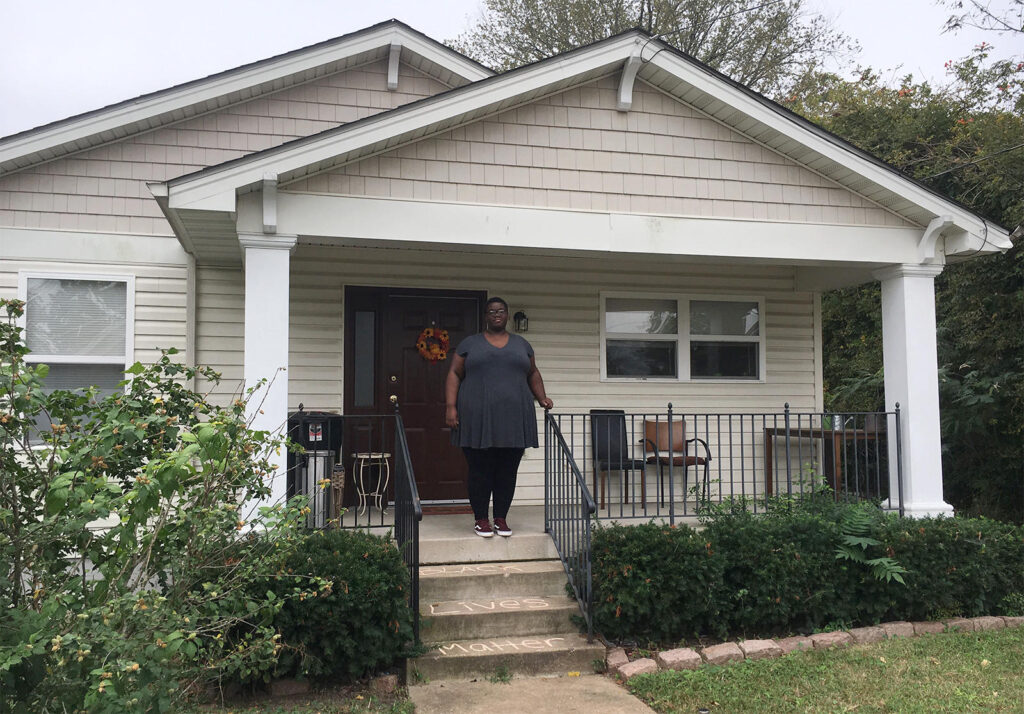
CREDIT JASON ROSENBAUM | ST. LOUIS PUBLIC RADIO
Bernisha Jamison is hoping that policymakers take what Krehmeyer says to heart. Her family pays a little over $700 a month to live in a Hillsdale ranch that Beyond Housing helped create.
“We’re safe here,” Jamison said. “And I guess the amount that we pay allows us to focus on other things. If we had to pay more than $712, chances are I wouldn’t be able to focus on school.”
The University of Missouri-St. Louis student said she would like more people to have the opportunity she’s received.
“I think it restores dignity in places where it’s been stripped,” Jamison said. “Having the opportunity to live somewhere that’s clean, safe and affordable is something that all people should have access to.”

